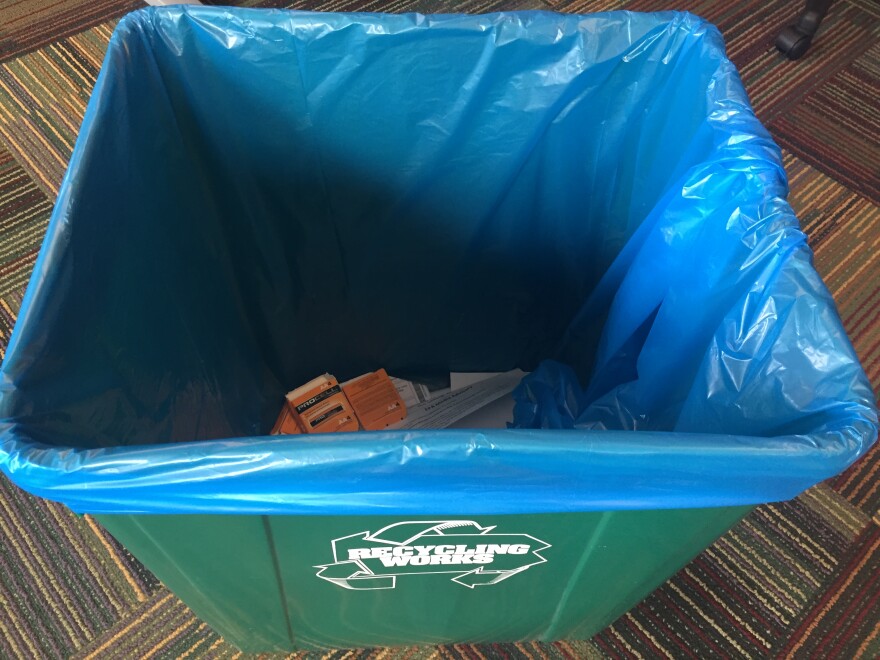It’s time to stop using blue Giant Eagle grocery bags to hold recyclables.
Despite the longtime curbside tradition, using blue bags actually harms Pittsburgh’s recycling program. According to Pennsylvania Resources Council western regional director Justin Stockdale, plastic bags interfere with the material’s sorting and makes the sorting machine less effective.
The cityfirst implemented its recycling programin the 1990s in compliance with the state’s Act 101, which required municipalities to provide recycling to residents. Back then, other cities around the country were using blue plastic bags to bring attention to the initiative.
“The tool for consumers to set out their recycling was in a plastic bag,” Stockdale said. “In the era, it was the standard nationally.”

Most recycling around the country was part of a dual stream program, which Stockdale said asked residents to do some of the labor in separating cans from newspaper from glass, etc. The best way to get the different materials to the curb was by putting them all in the blue bag.
Now, however, Pittsburgh and most other municipalities operate single stream recycling programs.
“So, we said to the consumer, ‘don’t worry about it, put it all in one container,’” Stockdale said.
Pittsburgh made the switch in 2008, with the goal of encouraging more residents to recycle. Stockdale said the idea was that if the consumer didn’t have to do the sorting, it’d be easier and they’d recycle more. But, he added, the data hasn’t backed that up.
“While a single stream may be more convenient for the consumer--and certainly it’s more efficient from a hauling perspective—it really hasn’t had a tremendous impact on total tonnage recycled in the U.S.,” Stockdale said.
Stockdale said when recycling goes to the processing facility, like the one in Hazelwood, it's run through special screens that start to sort out paper and cardboard from other materials. This is where crews deal with the bag issue, and often have to be hoisted over the machines to cut down the plastic.
“As the material flows through the system and the screens do their job, the screens are impacted by those plastic bags to the point where they become less efficient over the course of the day,” Stockdale said.
The remaining materials are sent through a machine that uses what’s called an Eddy current. Check out how this works:
Instead of the plastic bags, Stockdale said PRC has been distributing blue bins to residents. For the most part, he said efforts have focused on the North Side.In 2015, PRC conducted a study on the North Side, which concluded that use of the bins without bags resulted in higher quality bales leaving recycling processing facilities.
“That’s where we are in Pittsburgh today,” Stockdale said. “Finally understanding the linkage between the collecting system and the processing system and a real enough way that we can make better decisions.”
He said the city doesn’t have the funds to provide bins to every resident yet. For now, bins are available in some neighborhoods, but can also be purchased in stores.
To recycle the blue plastic grocery bags, Stockdale suggested taking them back to the grocery stores, where there are separate plastic bag recycling bins outside.
(Photo credit: Peter Kaminski/Flickr)




